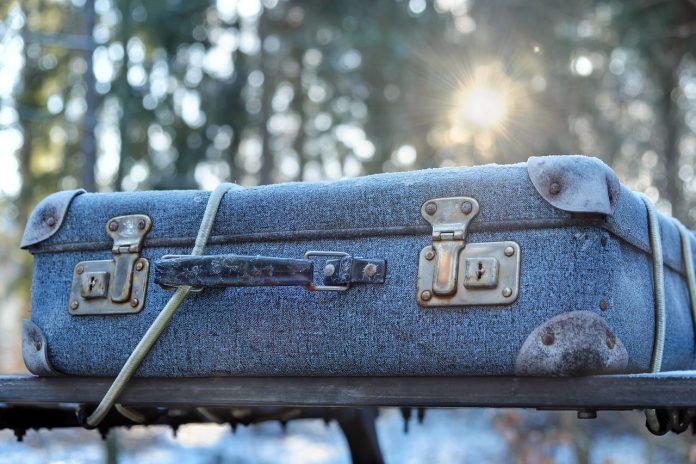Packing for an exchange can be a challenging task, especially considering you will be away from home for an extended period of time. And then you have to be extra careful not to forget anything.
Therefore, the idea is that you start planning well in advance and pack your suitcase very slowly. This is a way of not forgetting anything, or if you forget something, not being such a necessary item.
And to help you get ready, check out the 10 essential tips we’ve separated below to pack efficiently and make sure you have everything you need.
- Make a detailed list before packing for an exchange
Before you start packing your suitcase, make a detailed list of everything you need to take with you. This includes clothing, toiletries, important documents, electronics, and study essentials.
Refer to the list while packing to ensure you don’t forget anything. And remember that you will need to buy a cell phone or notebook charger in the destination country since the sockets are different.
- Research the destination’s climate and culture
Find out about the climate and culture of the destination country to determine what types of clothing and accessories will be needed. This is crucial.
Take into account climate variations throughout the year and be sure to include suitable clothing for different temperatures and weather conditions.
In Ireland, although it is not common to snow, the winter is more rigorous than in Brazil, and that is why it is so important to be prepared for this season of the year.
- Choose a quality suitcase
Investing in a quality suitcase is essential to ensure that your belongings are protected during your trip. Opt for a sturdy suitcase with comfortable wheels and handles that are easy to handle.
It seems not, but when you land in the country, you will see that it is very important to have an easy-to-handle suitcase. You will probably have to use public transport at some point during your trip.
- Use suitcase space wisely
Organize your clothes and personal items efficiently to make the most of the space available in your suitcase.
Use folding and rolling techniques to save space, and consider using suitcase organizers or vacuum bags to compact your clothes.
- Avoid taking unnecessary items when packing for an exchange
Resist the temptation to bring items you are unlikely to use during your exchange. Focus on the essentials and remember that you can buy additional items in your destination country if needed.
So no packing that giant suitcase and taking a lot of things in it. Try to be very practical when choosing what to take, as this will help you when you arrive in the country.
- Take a well-organized carry-on bag
Your carry-on bag should contain all the essentials you’ll need during the flight and the first few days of your exchange. This includes important documents, medication, electronics, a change of clothes, and basic personal hygiene items.
- Check baggage size and weight restrictions
Find out about the weight and size restrictions imposed by the airline and adjust your bag accordingly. Avoid excess baggage, as this may incur additional fees.
And depending on the airline you choose, fees for excess weights and sizes can be quite hefty and weigh heavily on your pocket.
- Tag your suitcase
Tag your suitcase with your name, address and contact information. This will facilitate identification and recovery in case of loss.
In addition, it may happen that upon arrival in the country, you have a suitcase similar to yours, and to avoid confusion, if your suitcase is labelled, it is easier to distinguish it.
- When packing for an exchange, protect fragile and valuable items
Be sure to properly pack fragile and valuable items like electronics, eyewear and jewellery. Use clothes or towels to protect them and, if possible, put them in your carry-on bag to ensure they are safe during the flight.
- Prepare for the Unforeseen
Carry a basic first-aid kit that includes medication for headaches, fever, stomach problems, and allergies.
It’s also a good idea to include a set of universal plug adapters, as plug standards can vary from country to country, as mentioned above.
Extra tip: Make digital copies of important documents, such as passports, visas and health insurance, and store them in a safe place, such as your email or a cloud storage platform. This can be useful if you lose your originals.
By following these 10 essential tips, you will be prepared to pack for your exchange in an efficient and organized way. Did you like it? Then share it with your friends on your social networks!















